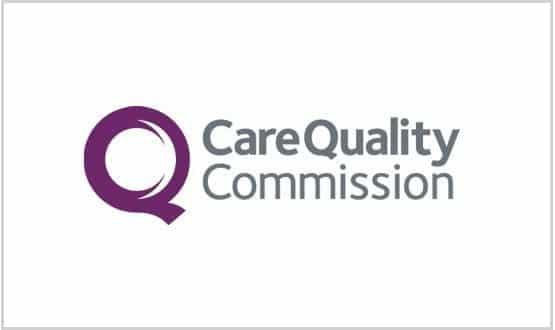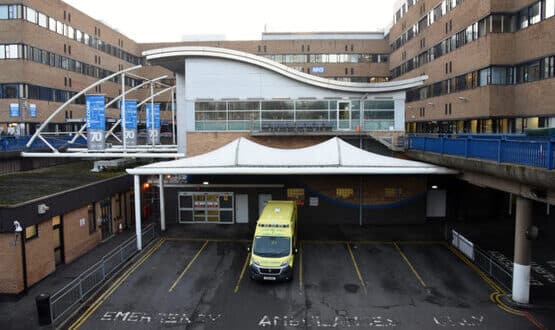Digital GP service found to be neither safe or effective by CQC

A private online video GP consultation service has been found to be delivering unsafe care in a damning report by the Care Quality Commission.
The regulator’s report into the online service Push Doctor found the service to be neither safe or effective.
Push Doctor charges patients £25 for a 10-minute video consultation. Manned by GPs working in their spare time it carries out up to 100,000 consultations a month.
The report found blood thinners and antidepressants had been dished out without patients first being given the correct monitoring and blood tests.
Doctors from the service were also temporarily banned from treating children after some were found not to identify young patients.
Manchester-based Push Doctor has hit back against the CQC findings, and Eren Ozagir, chief executive and founder, said “we found a number of factual inaccuracies, which we are formally disputing and working with the CQC currently to correct”.
The CQC report highlighted inappropriate prescribing of modafinil, a drug commonly used to treat narcolepsy, to a 29-year olf man to help keep the patient awake at work.
“Modafinil is not licensed for this use and an ECG [electrocardiogram] is required before initiation which was not done. It is associated with a risk of dependence on the drug.”
Push Doctor is one of 39 online providers of primary care registered with the CQC. Since last October the CQC has been providing more scrutiny for digital health services.
The CQC’s report also found that GPs working for the online service had prescribed high-risk medicine such as blood thinners without appropriate patient checks, and urgent action was taken to prevent Push Doctor treating children without appropriate checks first being undertaken. It has now been introduced.
A total of 137 prescriptions were also dispensed for items on the provider’s ‘do not prescribe’ list in the last 12 months.
Further criticisms were made of the IT systems and record keeping at the service. Of 36 medical records reviewed some key fields were missing including diagnosis, “there was no recording of any observations made by the clinician such as if the patient appears to have difficulty with breathing” and the report notes that reported problems with IT systems did not appear to have been resolved. “In addition, proper clinical assessments and red flag symptoms were not always recorded.”
Other online primary care service providers have passed their CQC inspection, such as Babylon Health. This company is currently working with NHS England in a NHS 111 app pilot in London and is also on the NHS app library.
However, other digital services have failed the CQC inspection. HR Healthcare Ltd. and MD Direct were suspended following inspection as the two providers were found to have widespread failings to provide safe care.
Andy Miah, chair in science communication and digital media at the University of Salford, responded to the CQC report by saying that current regulations need to adjust to meet changing patient’s needs.
“While Push Doctor is responding to this desire to find more effective ways for us to reach out to health care professionals, the CQC reminds us of how complex this process is, and how crucial it is to ensure that digital provision is well-regulated.”
“People’s lives today are lived in digital and physical spaces and a more blended approach to provision would benefit health care tremendously, not just financially, but also in terms of the quality of care. However, we still have a lot to learn about how best to care for people through such digital environments.”
“Present day policies and rules need modifications and patients and doctors need to evolve to ensure that high quality care is ensured.”
In the CQC’s April board papers, it spoke about the “significant concerns” it had around digital primary care services and said it hoped to complete inspections by autumn 2017.
In March, the CQC released a joint statement with the General Medical Council, the General Pharmaceutical Council and the Medicines and Healthcare products Regulatory Agency warning patients to act with caution when buying medicines online.
Steve Field, chief inspector of general practice at the CQC, said at the time: “We know that these websites can present convenient ways for people to access advice, treatment and medication”.
“However some services may be putting patients at risk. We are particularly concerned that risks to patients may not always be appropriately assessed or managed when they buy medicines online.”
Push Doctor told Digital Health News in October 2016 that patients in the Woodlands Practice covered by NHS Oldham CCG have been accessing the technology for free in the form of Push NHS since 2014. Normally the company charges £20 for each ten-minute appointment.
Ozagir did not elaborate on what his concerns with the report were, but said, “irrespective of the disputed CQC report, we have always implemented a very strict set of internal procedures to ensure that each one of our patients receive nothing but the safest and most reliable care”.
Digital Health News understands that before publication of reports into any health and care provider, the CQC goes through a process of factual accuracy checking with the provider.
Push Doctor says it employs GPs who often carry out online consultations remotely from their home.




7 Comments
Dan Gps are only human and very busy and will make honest mistakes like anyone else. Unfortunately everyone makes several mistakes every day. Even computers make mistakes.
in 2017 GP should not be having to spend anytime thinking or worrying about the IT, must be HoNeSt I think both responsibility and accountability app lies @ the national level for GP IT services
Dan GPs are only human and very busy and will make honest mistakes like anyone else. Unfortunately everyone makes several mistakes every day. Even computers make mistakes.
I’ll bet it is still better than my “NHS” GP.
I bet it isn’t.
My GP gave me a prescriptions intended for another patient. At best dangerous not to mention the breach of the data protection act and disclosing other patients details to me.
It probably also explains how they lost some of my prescriptions.
From an operational point of view they are grossness inefficient and have failed to modernize refusing to do even he most basic things such as use email.
The list goes on and when I complained they were very dismissive.
Dan GPs are only human and very busy and will make honest mistakes like anyone else. Unfortunately everyone makes several mistakes every day. I just replied to the wrong person for example. Even computers make mistakes.
Comments are closed.